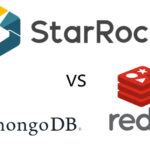Title:
Comparing FastAPI with DuckDB vs ClickHouse: Performance Showdown
Description:
Explore how to use FastAPI with DuckDB and ClickHouse for CRUD operations. Discover why FastAPI with ClickHouse delivers superior performance in high-load environments.
DuckDB vs ClickHouse: Overview
DuckDB:
- Use case: Embedded analytics, OLAP tasks on smaller datasets.
- Performance: Optimized for single-node, in-memory computations.
- Strengths: Lightweight, easy to set up for local data analysis.
ClickHouse:
- Use case: Distributed OLAP, real-time analytics on large datasets.
- Performance: Highly optimized for massive parallel processing and disk I/O efficiency.
- Strengths: Handles high-velocity data ingestion and complex queries at scale.
Setting Up FastAPI with DuckDB
- Install dependencies:
pip install fastapi uvicorn duckdb- Create the FastAPI app with DuckDB:
from fastapi import FastAPI
import duckdb
app = FastAPI()
conn = duckdb.connect('my_database.db')
@app.post("/users")
def create_user(name: str, email: str):
conn.execute("INSERT INTO users (name, email) VALUES (?, ?)", (name, email))
return {"message": "User created"}
@app.get("/users/{user_id}")
def read_user(user_id: int):
user = conn.execute("SELECT * FROM users WHERE id = ?", (user_id,)).fetchone()
return {"user": user}
@app.put("/users/{user_id}")
def update_user(user_id: int, name: str, email: str):
conn.execute("UPDATE users SET name = ?, email = ? WHERE id = ?", (name, email, user_id))
return {"message": "User updated"}
@app.delete("/users/{user_id}")
def delete_user(user_id: int):
conn.execute("DELETE FROM users WHERE id = ?", (user_id,))
return {"message": "User deleted"}- Run the server:
uvicorn main:app --reloadSetting Up FastAPI with ClickHouse
- Install dependencies:
pip install fastapi uvicorn clickhouse-driver- Create the FastAPI app with ClickHouse:
from fastapi import FastAPI
from clickhouse_driver import Client
app = FastAPI()
client = Client('localhost')
@app.post("/users")
def create_user(name: str, email: str):
client.execute("INSERT INTO users (name, email) VALUES", [(name, email)])
return {"message": "User created"}
@app.get("/users/{user_id}")
def read_user(user_id: int):
user = client.execute("SELECT * FROM users WHERE id = ?", [user_id])
return {"user": user[0]}
@app.put("/users/{user_id}")
def update_user(user_id: int, name: str, email: str):
client.execute("ALTER TABLE users UPDATE name = ?, email = ? WHERE id = ?", (name, email, user_id))
return {"message": "User updated"}
@app.delete("/users/{user_id}")
def delete_user(user_id: int):
client.execute("ALTER TABLE users DELETE WHERE id = ?", [user_id])
return {"message": "User deleted"}- Run the server:
uvicorn main:app --reloadWhy ClickHouse with FastAPI Outperforms DuckDB
- Parallelism: ClickHouse is built for distributed query processing, enabling it to handle large datasets efficiently across multiple nodes, unlike DuckDB which is designed for single-node analytics.
- I/O Efficiency: ClickHouse excels at handling disk-based queries, minimizing I/O bottlenecks, which makes it better suited for real-time analytics with high ingestion rates.
- High Availability: ClickHouse’s replication and sharding mechanisms make it ideal for fault-tolerant, high-throughput environments, offering superior performance in production scenarios compared to DuckDB.
In summary, if you’re working with high-velocity data streams or need horizontal scalability, FastAPI with ClickHouse offers a much faster and more robust solution than using FastAPI with DuckDB, which is better suited for lightweight, local analytics.






Leave a Reply